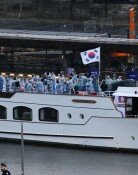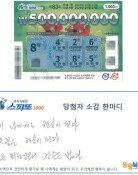Critics Blast Rohs New Advisors
President Roh did not intend to abolish the post of the senior presidential secretary for political affairs. It was just that he could not find anyone suitable for the position, a key official of the ruling party said recently at a private gathering.
I advised President Roh not to abolish the post after the 2004 general elections. So, I reviewed several candidates with President Roh, but could not find any suitable person to fill the post, the official added.
Eventually, the post of the presidential political advisor was abolished, despite opposition from the governing Uri Party,
The political advisor post must be restored to facilitate communication between political parties and Cheong Wa Dae, is what the Uri Party has been saying for the past two years. However, President Roh did not respond to the claim.
President Roh seems to have believed Cheong Wa Dae and political parties should be separated, the official of the ruling camp said.
However, President Roh announced on October 27 that he would appoint four former presidential aides as his special political advisors. They include former Prime Minister Lee Hae-chan; Moon Jae-in, former senior presidential secretary for civil affairs; Oh Young-kyo, former minister of government administration and home affairs; and Cho Young-taek, former head of the Office for Government Policy Coordination. So the number of presidential political advisors has now increased to five, including the existing presidential political advisor Lee Gang-cheol.
Some experts believe President Roh is trying to interfere with political issues by re-grouping politicians. In response, Uri Party lawmakers criticized President Rohs belated move, saying, What is the use of appointing them now?
Although twenty days have passed since they were appointed, it is still not clear what their roles are. The special advisors have allegedly never met each other since their appointment. Above all, the special political advisors should meet first in order to figure out what we have to handle, Cho said.
However, another official of the ruling party said, As each of the five advisors is likely to have a different objective to achieve, they are likely to divide their roles.
The participatory governments system is the most reliable administrative system, Lee Hae-chan said recently during a lecture. In this regard, an official of the Uri Party said, (Lees) role seems to be containing anti-Cheong Wa Dae sentiment within the Uri Party. In an effort to curb recent political movements, former Prime Minister Lee has also been reportedly meeting pro-Roh lawmakers, advising them to be discreet in their behavior.
Moon, who has kept a low profile, has not reportedly visited any political parties. Oh and Cho have not shown much activity as political advisors either. The two have been allegedly appointed in return for their participation in the March 31 local elections.
Lee Gang-cheol who has been accused of inappropriate behavior, such as opening a Japanese restaurant in front of Cheong Wa Dae, has been reportedly meeting politicians in the southeastern regions. There is too much interference from other presidential advisors in Cheong Wa Dae, Lee said at a private gathering. Lee will be soon working at the headquarters of the Uri Party as vice-chairman of the Advisory Council of State Affairs.
There is, however, rising criticism that although the appointment of the new political advisors raised the expectation that they would facilitate dialogue between the political parties and Cheong Wa Dae, nothing has improved. The political advisors are those who should even come to social gatherings to listen to the complaints of politicians, but none of them seem to be willing to do that.
yongari@donga.com







